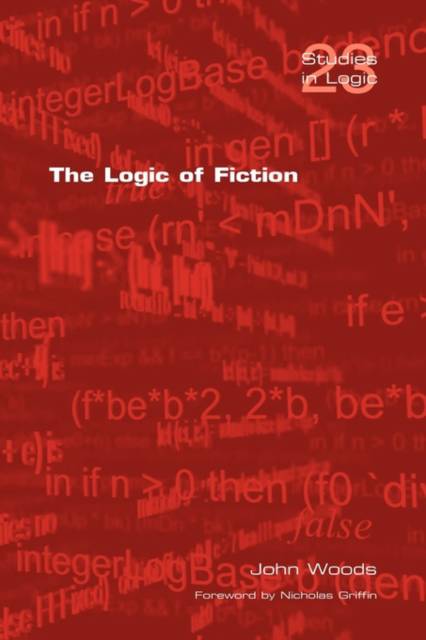
Je cadeautjes zeker op tijd in huis hebben voor de feestdagen? Kom langs in onze winkels en vind het perfecte geschenk!
- Afhalen na 1 uur in een winkel met voorraad
- Gratis thuislevering in België vanaf € 30
- Ruim aanbod met 7 miljoen producten
Je cadeautjes zeker op tijd in huis hebben voor de feestdagen? Kom langs in onze winkels en vind het perfecte geschenk!
- Afhalen na 1 uur in een winkel met voorraad
- Gratis thuislevering in België vanaf € 30
- Ruim aanbod met 7 miljoen producten
Zoeken
Omschrijving
John Woods' The Logic of Fiction, now thirty-five years old, is a ground-breaking event in the establishment of the semantics of fiction as a stand-alone research programme in the philosophies of language and logic. There is now a large literature about these matters, but Woods' book retains a striking freshness, and still serves as a convincing template of the treatment options for the field's key problems. The book now appears in a second edition with a new Foreword by Nicholas Griffin and an extended bibliography covering the period 1969-2009. As Griffin notes in his Foreword, it is "surprising on looking back to discover how little was written on the semantics of fiction before John Woods' The Logic of Fiction was published in 1974. The surprise is the greater because Woods' book appeared after almost a quarter century of fierce philosophical debate about reference Fictional discourse, one would have thought, would be an important testing ground for philosophical theories of referential expressions and one, moreover, in which the standard theories would likely be tested to destruction. " " One of the great merits of Woods' book is that it takes seriously the wide-ranging demands that fiction imposes on logic and semantics, and does not try to force fiction into some pre-conceived logical mould . but thanks to Woods' pioneering efforts, we are much closer to one now than we were when he set out to write his book. His book was not the last word on the logic of fiction; it was much more important: it was nearly the first." NICHOLAS GRIFFIN is Canada Research Chair in Philosophy at McMaster University. Recent publications include Russell vs Meinong: The Legacy of "On Denoting", edited with Dale Jacquette. JOHN WOODS is Director of the Abductive Systems Group at the University of British Columbia and Charles S. Peirce Visiting Professor of Logic in the Group on Logic and Computational Science, King's College London. He has two forthcoming books on fiction - an edited volume, Fictions and Models: New Essays, and a research monograph, Sherlock's Member: New Perspectives on the Semantics of Fiction, both to appear in 2010.
Specificaties
Betrokkenen
- Auteur(s):
- Uitgeverij:
Inhoud
- Aantal bladzijden:
- 246
- Taal:
- Engels
- Reeks:
Eigenschappen
- Productcode (EAN):
- 9781904987994
- Verschijningsdatum:
- 31/12/2009
- Uitvoering:
- Paperback
- Formaat:
- Trade paperback (VS)
- Afmetingen:
- 156 mm x 234 mm
- Gewicht:
- 349 g

Alleen bij Standaard Boekhandel
+ 40 punten op je klantenkaart van Standaard Boekhandel
Beoordelingen
We publiceren alleen reviews die voldoen aan de voorwaarden voor reviews. Bekijk onze voorwaarden voor reviews.









